热身 Warm-up
1 给下面的词语选择对应的图片 Match the pictures with the words.
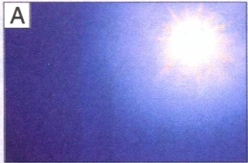
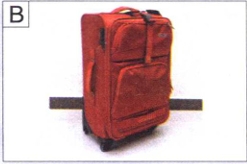
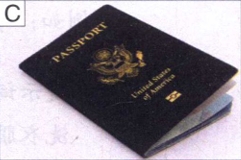
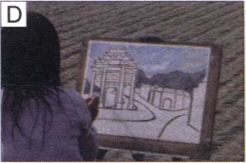
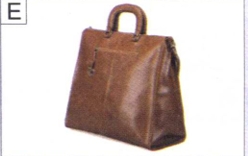
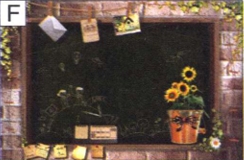
- 1 护照 hùzhào
- 2 黑板 hēibǎn
- 3 行李箱 xínglǐxiāng
- 4 太阳 tàiyáng
- 5 画儿 huàr
- 6 包 bāo
2 下边这些东西,你会放在什么地方?Where would you put the following things?
| 东西 | 放在哪儿 |
|---|---|
| 铅笔 qiānbǐ | 桌子上 zhuōzi shang |
| 衣服 yīfu | |
| 照片 zhàopiàn | |
| 钱包 qiánbāo | |
| 护照 hùzhào | |
| 笔记本电脑 bǐjìběn diànnǎo |
课文 Texts
1 在家 At home 12-1
小丽: 今天太阳从西边出来了吗?
小刚: 怎么了?
小丽: 你怎么这么早就要睡觉了? 以前都要12点以后才睡觉。
小刚: 我明天8点就要到公司。
小丽: 有事吗?
小刚: 经理生气了, 他告诉我, 明天8点不到, 以后就别来了。
1. 太阳 tàiyáng n. sun
2. 西 xī n. west
3. 生气 shēng qì v. angry
2 在家 At home 12-2
小刚: 我要跟周经理去外地办事, 明天的飞机。
小丽: 那我帮你把衣服放到行李箱里吧。什么时候回来?
小刚: 一个星期就回来。
小丽: 啊? 一个星期以后才回来?
小刚: 你要自己照顾好自己, 我已经给你准备好吃的和喝的了。
小丽: 好吧。我已经把我的照片放在你的包里了。
4. 行李箱 xínglǐxiāng n. luggage, suitcase
5. 自己 zìjǐ pron. self
6. 包 bāo n. bag, sack
3 在机场 At the airport 12-3
周明: 你怎么才来?
小刚: 对不起, 周经理, 来机场的路上我才发现忘带护照了。
周明: 快点吧, 飞机就要起飞了。
小刚: 您有钱吗? 司机把我送到机场的时候, 我才发现忘记带钱包了。
周明: 我看你还是把重要的东西放在我这儿吧。
7. 发现 fāxiàn v. to discover
8. 护照 hùzhào n. passport
9. 起飞 qǐfēi v. (of an aircraft) to take off
10. 司机 sījī n. driver
我是一个中学老师,教学生画画儿。每次下课前,我都会把下次学生需要带的东西写在黑板上,但是每次上课时,总会有学生忘了拿铅笔,所以我有点儿生气,不是因为他们没带铅笔,是因为他们没有好的学习习惯。
11. 教 jiāo v. to teach
12. 画 huà v./n. to draw, to paint; drawing, painting
13. 需要 xūyào v. to need
14. 黑板 hēibǎn n. blackboard
拼音课文 Texts in Pinyin
1、Zài jiā
Xiǎolì: Jīntiān tài yáng cóng xībiān chūlái le ma?
Xiǎogāng: Zěnme le?
Xiǎolì: Nǐ zěnme zhème zǎo jiù yào shuì jiào le? Yǐqián dōu yào shí’èr diǎn yǐhòu cái shuì jiào.
Xiǎogāng: Wǒ míngtiān bā diǎn jiù yào dào gōngsī.
Xiǎolì: Yǒu shì ma?
Xiǎogāng: Jīnglǐ shēng qì le, tā gàosù wǒ, míngtiān bā diǎn bú dào, yǐhòu jiù bié lái le.
2、Zài jiā
Xiǎogāng: Wǒ yào gēn Zhōu jīnglǐ qù wàidì bàn shì, míngtiān de fēijī.
Xiǎolì: Nà wǒ bāng nǐ bǎ yīfu fàngdào xínglǐxiāng lǐ ba. Shénme shíhou huílai?
Xiǎogāng: Yī gè xīngqī jiù huílai.
Xiǎolì: A? Yī gè xīngqī yǐhòu cái huílai?
Xiǎogāng: Nǐ yào zìjǐ zhàogù hǎo zìjǐ, wǒ yǐjīng gěi nǐ zhǔnbèi hǎo chī de hé hē de le.
Xiǎolì: Hǎo ba. Wǒ yǐjīng bǎ wǒ de zhàopiàn fàng zài nǐ de bāo lǐ le.
3、Zài jīchǎng
Zhōu Míng: Nǐ zěnme cái lái?
Xiǎogāng: Duìbuqǐ, Zhōu jīnglǐ, lái jīchǎng de lùshang wǒ cái fāxiàn wàng dài hùzhào le.
Zhōu Míng: Kuài diǎnr ba, fēijī jiù yào qǐfēi le.
Xiǎogāng: Nín yǒu qián ma? Sījī bǎ wǒ sòng dào jīchǎng de shíhou, wǒ cái fāxiàn wàngjì dài qiánbāo le.
Zhōu Míng: Wǒ kàn nǐ háishì bǎ zhòngyào de dōngxi fàng zài wǒ zhèr ba.
4、Wǒ shì yī gè zhōngxué lǎoshī, jiāo xuésheng huà huàr. Měi cì xià kè qián, wǒ dōu huì bǎ xià cì xuésheng xūyào dài de dōngxi xiě zài hēibǎn shang, dànshì měi cì shàng kè shí, zǒng huì yǒu xuésheng wàngle ná qiānbǐ, suǒyǐ wǒ yǒudiǎnr shēng qì, bú shì yīnwèi tāmen méi dài qiānbǐ, shì yīnwèi tāmen méiyǒu hǎo de xuéxí xíguàn.
注释 Notes
1 “才” 和 “就” Comparison of “才” and “就”
“才” 和 “就” 都可以放在动词前做状语。
Both “才” and “就” can be used as an adverbial modifier before a verb.
“就” 的用法:
“就” 表示说话人认为动作发生得早,进行得快、顺利。例如:
“就” indicates that in the speaker’s opinion, the action happened early, or went on fast or smoothly. For example:
- (1)我早上五点就起床了。
- (2)坐飞机一个小时就到了。
- (3)我很容易就找到了他的家。
- (4)你怎么这么早就要睡觉了?
“才” 的用法:
“才” 表示说话人认为动作发生得晚,进行得慢、不顺利。例如:
“才” indicates that in the speaker’s opinion, the action happened late, or went on slowly or unsatisfactorily. For example:
- (5)八点上课,他九点才起床。
- (6)坐火车八个小时才能到。
- (7)弟弟三个小时才做完作业。
- (8)来机场的路上我才发现忘带护照了。
练一练 Practise
完成对话 Complete the dialogues.
- (1)A: 你昨天几点回的家?
B: _______________。 - (2)A: 昨天的作业你多长时间写完的?
B: _______________。 - (3)A: 你昨天睡了几个小时?
B: _______________。
2 “把” 字句2:A把B+V+在/到/给……
The Ba-Sentence 2: A把B + V + 在/到/给……
汉语中,表示对确定的人或事物做出相应动作,使其发生位置上的改变,多用 “把” 字句表达,其结构为 “A把B+V+在/到+location” 。例如:
In Chinese, a ba-sentence is often used to indicate a certain action is done on a definite person or thing and has changed the location of the person or thing, the structure being “A把B + V + 在/到 + location”. For example:
(1)我把照片放在你包里了。
(2)老师把作业放在桌子上了。
(3)我没把裤子放到椅子上。
(4)我帮你把衣服放到行李箱里吧。
表示通过动作使某确定事物发生关系上的转移,可以用 “A把B+V+给 +sb.” 例如:
If an action has changed the owner or user of a definite object, the structure “A把B + V +给 +sb.” is used. For example:
(5)我把鲜花送给老师了。
(6)我朋友把书借给我了。
(7)弟弟没把钱还给哥哥。
(8)你帮我把这本书带给小刚。
练一练 Practise
用提示词完成句子 Complete the sentences with the words given.
(1)我把书 。
(2)司机把我 。
(3)我想把这些吃的 。

Comments